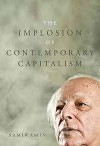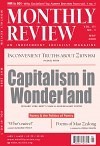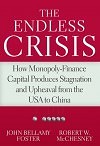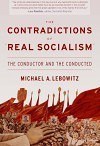Global
At the time of this writing (late August), the business news in the United States is full of discussions of “recovery” from the worst economic crisis since the Great Depression. Yet, while the economy appears to have bottomed out and a recovery of sorts may be in the works, this is in many ways misleading. Although a technical or formal recovery seems quite likely by the end of the year — with a small increase in economic growth mainly due to inventory restocking — it is unlikely to feel like a recovery to most individuals in the society. This is because official unemployment is projected to rise to the low double-digits by the end of this year or the beginning of next year — with the numbers of those dropping out of the labor market due to discouragement, or seeking part-time work because they are unable to obtain a full-time job, also growing. All of this points to a “jobless” and “wageless” recovery. As New York University economist Nouriel Roubini wrote in an August 13 column for Forbes.com, “It is very difficult to argue that the U.S. economy is not still in a recession while the labor market is still weak.” Indeed, what is really at issue is not simply recession and recovery but the longer-term structural crisis of capitalism. This is the subject of the Review of the Month, which seeks to place the current crisis in the context of the long-term development of capital accumulation and crisis. | more…

In this slim, insightful volume, noted economist Samir Amin returns to the core of Marxian economic thought: Marx’s theory of value. Amin defends Marx’s theory of value against its critics and also tackles some of its trickier aspects. He examines the relationship between Marx’s abstract concepts—such as “socially necessary labor time”—and how they are manifested in the capitalist marketplace as prices, wages, rents, and so on. He also explains how variations in price are affected by the development of “monopoly-capitalism,” the abandonment of the gold standard, and the deepening of capitalism as a global system. | more…

Renowned political economist Samir Amin, engaged in a unique lifelong effort both to narrate and affect the human condition on a global scale, brings his analysis up to the present—the world of 2013. The key events of our times—financial crisis, the emerging nations, globalization, financialization, political Islam, Euro–zone implosion—are related in a coherent, historically based, account. | more…
The grim state of the U.S. economy in early 2009 was brought into sharp relief by economic data released at the end of April. Industrial production in the first quarter of this year dropped by an annual rate of 20 percent, while manufacturing capacity utilization (the operating rate of manufacturing plant and equipment) sank to 65.8 percent in March, the lowest level since the Federal Reserve Board series was introduced in 1948 (industrial capacity utilization as a whole is currently at 69.3 percent, its lowest point since that measurement began in 1967). | more…

This book examines the historical record of globalization and restores agency to the capitalists, policy-makers, and politicians who worked to craft a regime of world-wide exploitation. It demolishes their neoliberal ideology – already on shaky ground after the 2008 financial crisis – and picks apart the record of trade agreements like NAFTA and institutions like the WTO. But, crucially, Hart-Landsberg also discusses alternatives to capitalist globalization, looking to examples such as South America’s Bolivarian Alliance for the Americas (ALBA) for clues on how to build an international economy based on solidarity, social development, and shared prosperity. | more…

This issue of Monthly Review marks the sixtieth anniversary of the magazine. We are reprinting here Albert Einstein’s classic article “Why Socialism?,” written for volume 1, no. 1, of Monthly Review (May 1949). On Thursday, September 17, we will meet together at the Ethical Culture Society in Manhattan to celebrate and to promote a global socialism for the twenty-first century. We invite all our subscribers and friends. | more…

Is it advisable for one who is not an expert on economic and social issues to express views on the subject of socialism? I believe for a number of reasons that it is.… Clarity about the aims and problems of socialism is of greatest significance in our age of transition. Since, under present circumstances, free and unhindered discussion of these problems has come under a powerful taboo, I consider the foundation of this magazine to be an important public service. | more…
It is now universally recognized that the U.S. economy is experiencing a deep downturn unlike anything seen since the 1930s. Hence, the question continually arises: How close is this to a depression? One way of answering is to look at the unemployment rate. The Great Depression hit bottom in 1933 when unemployment peaked at 25 percent. Today the United States is losing jobs at the rate of 600,000 a month. But the official unemployment rate currently stands at 8.1 percent (seasonally adjusted, February 2009). This is the highest rate of official unemployment in a quarter-century, but hardly what is considered a depression-level rate, which is usually thought of as well into the double-digits. | more…

Socialist Register 2013 seeks to explore and clarify strategy for the Left in the light of new challenges and new opportunities. Socialists today have to confront two realities: that they cannot avoid the question of reforms and a gradualist path out of capitalism, and that the organizational vehicles for socialism will most likely have to abide by different structures and principles than those that dominated left politics in the 20th century. Though solutions are not obvious, Socialist Register 2013 interrogates these dilemmas and critiques some unhelpful radical thinking that obstructs the reconsideration of socialist strategy for the 21st century. It asks, how have the occupations of public squares around the world changed the political scene? What are the most useful forms of political organization in the new conjuncture? Which features of past organizational models should be retained, and which discarded? | more…

The days of boom and bubble are over, and the time has come to understand the long-term economic reality. Although the Great Recession officially ended in June 2009, hopes for a new phase of rapid economic expansion were quickly dashed. Instead, growth has been slow, unemployment has remained high, wages and benefits have seen little improvement, poverty has increased, and the trend toward more inequality of incomes and wealth has continued. It appears that the Great Recession has given way to a period of long-term anemic growth, which Foster and McChesney aptly term the Great Stagnation. This incisive and timely book traces the origins of economic stagnation and explains what it means for a clear understanding of our current situation. | more…

In this concise volume, noted scholar and economist Michael A. Lebowitz considers the legacy of twentieth century socialist societies, or what some have termed “real socialism.” While these societies were able to claim major achievements in areas from health care to education to popular culture, they nonetheless met limited success in eroding what Marx called the “opposition of the worker as direct producer and the proprietor of the means of production.” That this opposition between workers and managers continued to exist in one form or another under “real socialism” means that, according to Lebowitz, a crucial aspect of the socialist project was lost. | more…
This number of Monthly Review is a special issue on “Ecology: The Moment of Truth,” edited by Brett Clark, John Bellamy Foster, and Richard York. In the present issue we concentrate on the planetary environmental emergency. In a later special issue, to appear this fall, the magazine will address the social and economic regime change that is necessary to save the earth as we know it | more…







